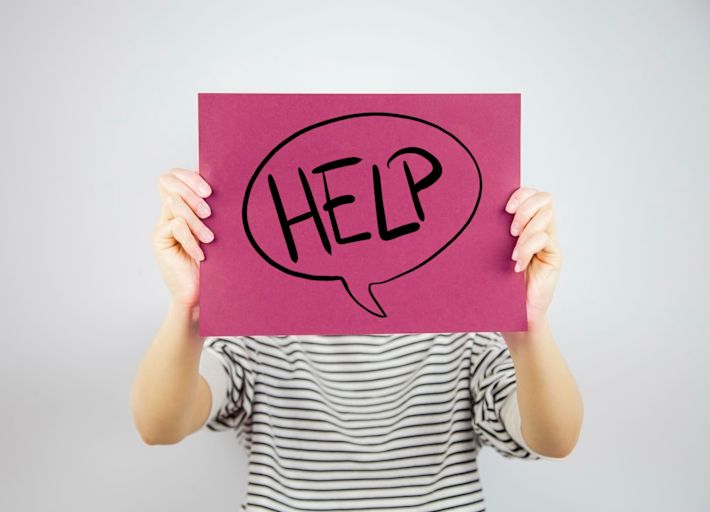Students Speak: All I Wanted to Do Was Dance — and Then I Developed an Eating Disorder
If you or someone you know may have an eating disorder, please call or text the National Eating Disorders Association Helpline at (800) 931-2237.
Trigger Warning: This article contains mentions of eating disorders and weight loss.
For the majority of my life, all I wanted to do was dance.
My life was consumed by it. Being a dancer was my only dream, and truthfully at times the only thing I thought I was good at. That overwhelming feeling of “this is all I have, this is my one shot, I can’t waste it” put an infinite amount of pressure on what was supposed to be an activity and set me up to be easily influenced by the industry body standards.
While the industry is beginning to evolve, when I danced professionally from 2013-2019, a lot of my success or failure was indirectly linked to numbers. I very clearly remember at age 12 when I auditioned for the role of Clara in “The Nutcracker” — a role most young dancers dream of.
Before I went into the audition, another dancer told me I was unlikely to get the role, no matter how good I was, because the company used the same costumes from year to year, and I was not going to fit into Clara’s costume.
Needless to say, I bombed the audition and did not get the role. It was one of those instances that maybe didn’t seem like a big deal at the time, but it was a definitive moment that shifted my perspective on the world and myself.
From that moment on, my life became absolutely consumed with numbers — my weight, my sudden stunt in growth. I could tell anyone at any given point exactly what needed to change about my body, which I was constantly working on.
I ate from a limited array of food. My body survived 30-hour dance weeks on exclusively rice cakes and chicken breasts. It was easier this way. I knew exactly what I was putting in my body and, most importantly, how many calories I was intaking. On rare occasions when I would eat out, I would obsessively look up the menu beforehand and knew every ingredient on the list before even entering the restaurant.
“From that moment on, my life became absolutely consumed with numbers — my weight, my sudden stunt in growth.”
There was no eating for pleasure or enjoyment — I ate for fuel, and just enough to get me through. But never an ounce more.
I retired from dance when I started college, and I thought it would be the end of my disordered eating. Without the constant pressure to be light enough to lift or fit in the next costume, I saw a new beginning for myself. One where I enjoyed my birthday cake without thinking about working it off the next day. A reality devoid of crying into a toilet bowl, dreading the purge I knew was about to come.
What I quickly learned upon setting foot on a college campus is that beauty standards and harmful narratives are not native to an industry; they are factors that influence all of society. I was hearing and seeing the same kind of body-shaming and diet culture that was normalized in the dance world — just repackaged in a neat college-girl box.
Before going out to a party, girls would encourage me not to eat for a couple of hours beforehand, and that way I would look my best. I quickly found that I had no idea what “my best” even meant.
For the first time in my life, I was changing and evolving, not desperately clinging to stagnancy. My body was no longer the same body that survived the MyFitnessPal obsession or the blood, sweat, and torn tendons. I suddenly had no end goal in sight, no standard to achieve.
My disordered eating habits shifted from being a mechanism to fulfill a preset standard to something more insidious. More than anything, I craved control.
My life, up until that point, had never felt like my own. Like millions of young women, I felt enslaved to expectations — expectations from society to be proper and passive and pretty. Expectations from my loved ones to be strong and supportive and successful. My life felt planned and structured for me, but at the end of the day, I could still control what was going into my body.
It felt disturbingly good to purposely do something destructive. I couldn’t express my feelings to anyone without fear of seeming weak or, God forbid, sensitive. It’s already hard enough for women to be taken seriously.
I could, however, express myself by harming my body. A lot of people think that those who suffer from disordered eating are sad. Some are. I was angry. Angry at being silenced. Angry at never being taken seriously. Angry at a thousand painful things that make up the human experience. I hurt myself in protest by pushing my body to its absolute brink.
My relationship with my eating disorder has changed a lot. It began with body image and evolved into an extreme reaction to stress and pressure. I’ve been in recovery for two years. During those two years, I’ve made significant progress and also experienced setbacks. I relapsed during finals week last year because the stress triggered using the crutch of my disordered eating habits.
I’ve never sought treatment due to the cost and the fear of the stigma that surrounds it. I’ve been lucky to have a community of people who supported me after I was honest about what I was going through, but I regret never seeking professional treatment. If you think you or someone you know may have an eating disorder, don’t make the same mistake I did.
The thing about eating disorders is that they can feel so silly and personal that people rarely talk about them. The uncomfortable truth is that they’re life-threatening. They’re not a phase, and they deserve immediate and quality treatment.
It was hard for me to seek help, and harder to write this article. My eating disorder has affected almost every aspect of my life. A decision I made when I was 12, to let a set of standards and a sea of strangers dictate how I take care of one of the only things that is truly my own, has had immeasurable consequences.
Your body is one of the only constants you have in a world of variables. Take care of it, love it, cherish it.

DISCLAIMER: The information provided on this website is not intended or implied to be a substitute for professional medical advice, diagnosis, or treatment; instead, all information, content, and materials available on this site are for general informational purposes only. Readers of this website should consult with their physician to obtain advice with respect to any medical condition or treatment.
Meet the Author

I am a junior at the University of Alabama, where I study political science and international studies on the pre-law track. At UA, I serve as chairwoman of the Advisory Council on Wellness as well as director of strategic initiatives for the Student Government Association. I am the founder of the advocacy initiative Unite to Fight Poverty, which aims to combat poverty by teaching and using the power of political advocacy.



